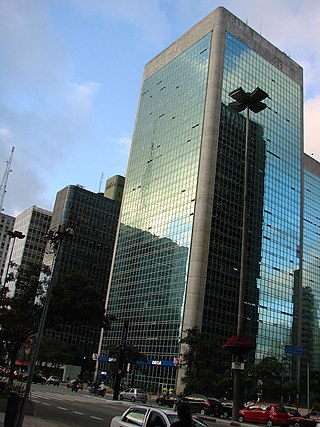
The Federal Supreme Court is the supreme court of Brazil, serving primarily as the country's Constitutional Court. It is the highest court of law in Brazil for constitutional issues and its rulings cannot be appealed. On cases involving exclusively non-constitutional issues, regarding federal laws, the highest court is, by rule, the Superior Court of Justice.

The law of Brazil is based on statutes and, partly and more recently, a mechanism called súmulas vinculantes. It derives mainly from the European civil law systems, particularly the Portuguese, the Napoleonic French and the German.

The Superior Electoral Court is the highest body of the Brazilian Electoral Justice, which also comprises one Regional Electoral Court in each of the 26 states and the Federal District of the country, as determined by the Article 118 of the Constitution of Brazil.
Regional Electoral Court is the judicial body that is in charge of elections at the state level in Brazil. There are 27 TREs, one for each Brazilian state, plus one for the Federal District.

In most legal jurisdictions, a supreme court, also known as a court of last resort, apex court, and highcourt of appeal, and court of final appeal, is the highest court within the hierarchy of courts. Broadly speaking, the decisions of a supreme court are binding on all other courts in a nation and are not subject to further review by any other court. Supreme courts typically function primarily as appellate courts, hearing appeals from decisions of lower trial courts, or from intermediate-level appellate courts. A supreme court can also, in certain circumstances, act as a court of original jurisdiction.

The judiciary of Portugal is a system of courts that together constitute one of the four organs of Sovereignty as defined by the Portuguese Constitution. The courts are independent from the other three Portuguese organs of Sovereignty.

The Superior Court of Justice is the highest appellate court in Brazil for non-constitutional issues regarding federal law. The STJ also has original jurisdiction over some cases. Its jurisdiction is provided for in Article 105 of the Brazilian Constitution.

The Regional Federal Courts are the courts of appeal in the Federal Courts of Brazil, the second instance courts of the Brazilian federal justice system, responsible not only for appeals of trial court decisions, but also for writs of security, habeas corpus, and habeas data against acts by federal judges, motions to set aside judgments, criminal revisions, and conflicts of jurisdiction.
The federal court system of Brazil has all its organs and competences listed and defined in the Brazilian 1988 Constitution. The National Justice Council is an exclusively administrative organ of the federal court system.

The National Council of Justice (CNJ) is an administrative and oversight organ of the Brazilian Judiciary created by constitutional amendment in 2004 as a part of judicial reform. Among its responsibilities are ensuring that the judicial system remains autonomous, conducting disciplinary proceedings against members of the Judiciary, and compiling and publishing statistics on the Brazilian court system. The Council has nationwide jurisdiction over all courts except the Supreme Federal Court, but makes no rulings on cases and does not review judgements of other courts. Its fifteen members are chosen by the Supreme Federal Court for two-year terms.

Regional Labor Courts are Brazilian appellate courts of the Federal specialized court system for matters of labor law. There currently are 24 Regional Labor Courts, geographically defined by numbered Regions.

Desembargador is a Portuguese title given to some appellate judges in Portugal, Brazil and other countries influenced by the Portuguese legal tradition.

The Judiciary of Brazil is the group of public entities designated by the Brazilian constitution to carry out the country's judicial functions.
The Federal Government of Brazil is the national government of the Federative Republic of Brazil, a republic in South America divided into 26 states and a federal district. The Brazilian federal government is divided into three branches: the executive, which is headed by the President and the cabinet; the legislative, whose powers are vested by the Constitution in the National Congress; and the judiciary, whose powers are vested in nine organs, including the Supreme Federal Court and lower federal courts. The seat of the federal government is located in Brasília.
Carlos Alberto Reis de Paula is the first Afro-Brazilian president of Brazilian Superior Labor Court.

The East Timor Supreme Court of Justice, also known as the Court of Appeal of East Timor, is the highest court of East Timor. It was established by the Constitution of East Timor with ultimate jurisdiction over all legal, constitutional and electoral matters.

The Brazilian criminal justice system comes from the civil law of Western Europe, in particular Portuguese law, which derives from Roman law. The earliest legal documents in Brazil were land grants and charters dating to the early 16th century, which continued to be used until independence in 1822. Various basic principles of law are enshrined in the 1988 Constitution, such as the principle of legality and the principle of human dignity.

Paulo Gustavo Gonet Branco is a Brazilian jurist, professor and prosecutor. A member of the Federal Public Ministry of Brazil since 1987, he is the current Prosecutor General of the Republic.














